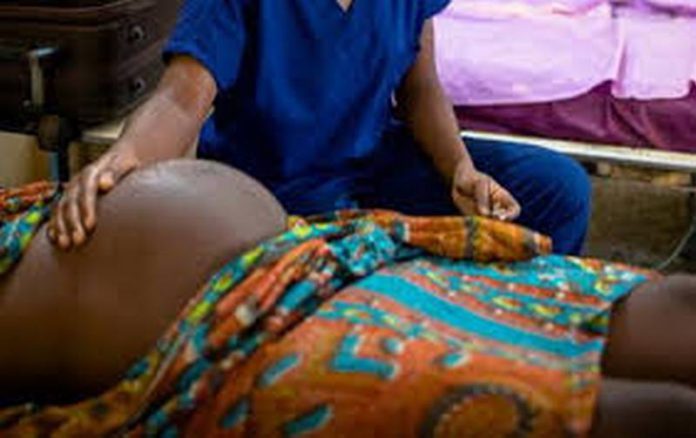
The Kwahu Afram Plains District Directorate of the Ghana Health Service (GHS) has expressed concerns over the high prevalence of anaemia among pregnant women at 36 weeks of gestation, and increasing still births.
Almost all health facilities in the district continue to record increasing cases of anaemia among pregnant women in their third trimester.
Health facilities at Ekye Amanfrom and Forifori, for instance, recorded 79.4% and 64.1% anaemia cases among pregnant women at 36 weeks of gestation respectively.
Anaemia is a blood condition that develops when you do not have enough red blood cells. Red blood cells contain haemoglobin, a protein that carries oxygen around the body of the pregnant woman and to the baby.
The condition has been linked to premature birth, low birth weight and an increasing trend of stillbirth in the district.
According to the Kwahu Afram Plains South District Health Director, Mr Richard Essien, the directorate is deploying strategies including the establishment of pregnancy schools in health facilities for education on proper dieting during pregnancy to reduce iron deficiency.
Kwahu Afram Plains South District with population of 74,000, continues to struggle for access to quality healthcare due to the lack of District Hospital.
Currently, there are 36 health facilities including 29 CHPs and 6 health centres as well as one private facility in the district. Most of the facilities are however in deplorable state.
Inadequate critical staff also continue to inhibit quality healthcare.
The ratio of Physician assistants to a population in the district is 1:8,222 from 1:16,257 in 2020.
The nurse to population ratio in 2021 has been reduced to 1:350 from 1:950 in 2020 while midwife to women in Fertility Age(WIFA) population ratio is 1:658 from 1:1,428 in 2020.
Kwahu Afram Plains South District Health Director Mr Richard Essien, there is inadequate medical logistics, vehicles and motorbikes to work in the hard to reach communities in the district.
“Afram Plains South is one of the deprived communities in Ghana. Deprived in the sense that we occupy a very large landmark size of about 16 % of the region’s landmass and for that matter with scattered population and island communities.
“It has been very challenging the kind of terrain we work in, you need strong manpower, you need committed staff and most importantly strong motorbikes to undertake these activities. But these have been challenges,” the Health director said.
He continued “We have weak motorbikes, only 44% of our motorbikes are within 5 years and these are even few. Not every facility in the district has a motorbike in other to move the services to other communities. Another biggest challenge is the infrastructure.
“Though the assembly is constructing some CHPs compound two under construction we still have a good number in a bad state. Some of the facilities require major renovation, some in temporal structures, single rooms and the rest and also we have some of our facilities without electricity and network.”
Due to inadequate staff, the district health Directorate has been engaging the services of volunteers in the communities to augment staff strength in the district.
These volunteers were rewarded for their selfless services during a recent Annual Performance Review meeting of the district.
The District Chief Executive for Kwahu Afram Plains South District, Evans Kyei Ntiri, said government is investing heavily to improve the infrastructural deficit including road and health facilities in the district.

